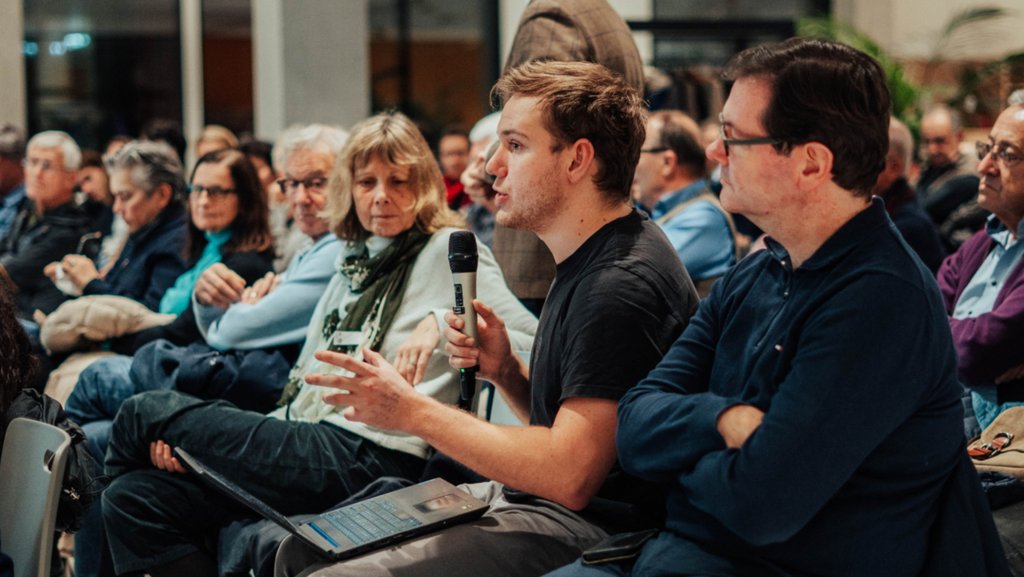Events - 01.09.2025 - 11:15
This semester's public programme once again offers many exciting lectures. The programme reflects the profile of HSG – with topics ranging from economics, law and politics to computer science, history, art and society. A special focus is placed on the history of St.Gallen and the region.
Three appetisers from the menu for those hungry for knowledge – more information can be found in the new flyer:
In addition to the current focus topics, numerous lecture series are dedicated to the processes of change in our time:
Three lecture series tell of individual fates, self-expression and the power of stories:
Some lecture series are fixed components of our programme:
Starting this year, you can find our offerings in a compact flyer. Once unfolded, you can see all the offerings at a glance. Course descriptions and details can be found in the usual detail on the website of the public programme.
Some lectures take place in the HSG newest building SQUARE. It's worth taking a look at the programme – it includes public theatre plays, films and the “Personalities in Residence” format: hsg-square.ch
Registration is required for those public lectures that take place online: unisg.link/OeffentlichesProgramm
Attendance is free of charge for members of the University of St.Gallen, students, lecturers and staff. Interested parties can attend the first lecture in a series free of charge.
Flyers and semester passes can be ordered via oeffentlichesprogramm@unisg.ch or by calling +41 71 224 33 39 (Tuesdays and Wednesdays, 9:00-11:00 a.m.).
